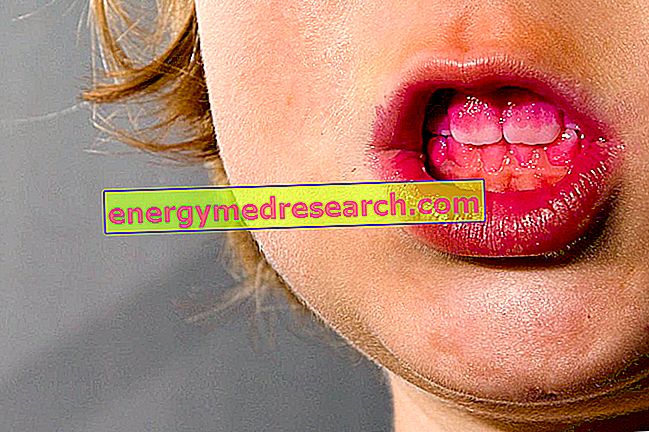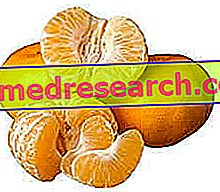DAFLON ® is a flavonoid based drug. More precisely, it is the purified and micronized flavonoid fraction, consisting of diosmin 90% and hesperidin for the remaining 10%.
THERAPEUTIC GROUP: Vasoprotectors
IndicationsAction mechanismStudies and clinical effectiveness Usage and dosage instructionsWarnings Pregnancy and lactationInteractionsContraindicationsUndesirable effects
Indications DAFLON ® Flavonoids
DAFLON ® is indicated as an adjuvant therapy in the treatment of varicose veins and phlebitic complications of hemorrhoids, and those related to states of capillary fragility.
Mechanism of action DAFLON ® Flavonoids
The flavonoids contained in DAFLON ® and in particular the diosmin, once taken orally are metabolized by the intestinal flora into active principles able to be absorbed by the enteric mucosa, then distributed through the circulatory stream.
The capillary and vasotonic action appears to be carried out through the activation of numerous biochemical and molecular pathways, able to stabilize the venous vascular walls and also improve the hemodynamic profile.
Although the scientific literature is still involved in the characterization of the functionality of these flavonoids, a vasotonic action has been described, probably mediated by the increase of the sympathetic effect on the venous component, an anti-waterproofing action, exercised through the inhibition of prostaglandins and thromboxane A2 and pro-inflammatory mechanisms - such as activation of neutrophils and expression of adhesion molecules - and an antiedematous action, probably due to the improvement of the draining function of the lymphatic network.
After a long half-life, around 12 hours, the metabolites of flavonoids contained in DAFLON ® are mainly excreted through the faeces.
Studies carried out and clinical efficacy
DAFLON IN THE TREATMENT OF VENOUS DISEASE
A critical rereading of the literature has shown how, in addition to surgery, the therapeutic action of flavonoids contained in DAFLON can guarantee a reduction in the risk of venous ulcers, edema and associated symptomatology, in patients suffering from venous grade disease C4-C6.
DAFLON IN THE TREATMENT OF SYMPTOMS BY CHRONIC VENOUS INSUFFICIENCY
Treatment with DAFLON, in patients suffering from chronic venous insufficiency, allowed an improvement in symptoms and clinical aspects in a few months of treatment. More precisely, in addition to a significant reduction in pain and discomfort in the lower limbs, a reduction in calf circumference and a reduction in the pain scale was observed. The use of DAFLON seems particularly indicated in the treatment of the symptoms of venous insufficiency, before the appearance of varicose veins.
DAFLON, INFLAMMATION AND VENOUS INSUFFICIENCY
Venous hypertension and venous stagnation that are observed in patients suffering from chronic venous insufficiency, determine an "entrapment" of the blood leukocytes with consequent activation. The activation of the inflammatory process, also characterized by the expression on the vascular endothelium of adhesion molecules, does nothing but worsen the symptoms, further chronicling it and facilitating the onset of venous ulcers. The efficacy of DAFLON in the treatment of chronic venous insufficiency does not seem to be associated exclusively with the reduction of symptoms, but also with an important anti-inflammatory action, which can be monitored by reducing the concentrations of inflammatory markers.
Method of use and dosage
DAFLON ® 500 mg coated tablets of flavonoids (450 mg of diosmin and 50 mg of hesperidin): the recommended dosage is 2 coated tablets per day, possibly taken with a glass of water during meals.
In the haemorrhoid crisis, the daily dose can be increased up to 6 tablets in the first four days and 4 tablets in the following 3 days.
The correct setting of the therapeutic procedure should however be carried out by the doctor, also based on the patient's health conditions and the severity of his pathology.
Warnings DAFLON ® Flavonoidi
DAFLON ® appears to be well tolerated; it is therefore devoid of special warnings.
PREGNANCY AND BREASTFEEDING
The absence in the literature of clinical trials evaluating the absence of side effects on the health of the fetus and the newborn, following the intake of DAFLON ® in pregnancy, do not allow defining the safety profile of the drug. Therefore, it would be advisable to avoid the intake of DAFLON ® both during pregnancy and lactation. This precaution seems to be supported also by some experimental evidences, which show a possible mutagenic action of bioflavonoids on some genes involved in the control of cell proliferation
Interactions
No interactions are currently reported that can significantly alter the pharmacokinetic profile of DAFLON ®
Contraindications DAFLON ® Flavonoids
DAFLON ® is contraindicated in case of pregnancy and lactation, and in case of hypersensitivity to one of its active ingredients.
Undesirable effects - Side effects
The data obtained from clinical trials and post-marketing monitoring suggest the good tolerability of DAFLON ®
The only adverse reactions, of little clinical relevance, include gastro-intestinal disorders and neurovegetative disorders such as dry mouth, sweating, excitability or modest depression.
Note
DAFLON ® is a non-prescription drug.



